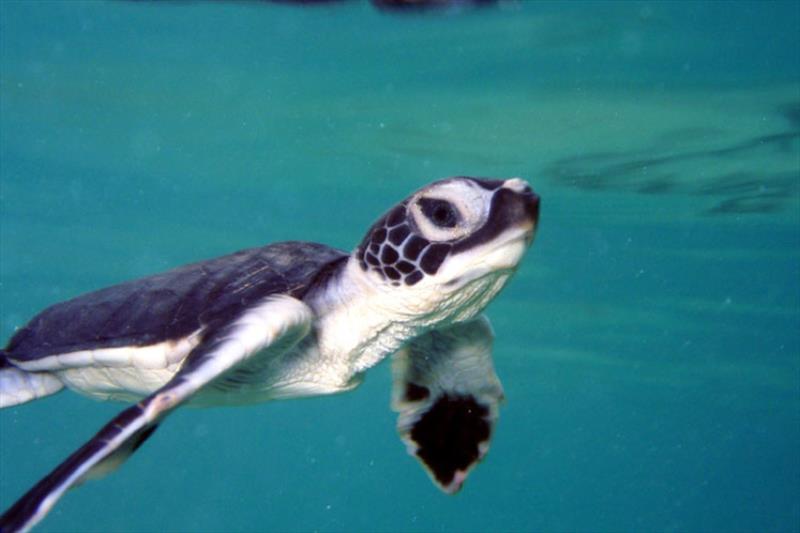
Celebrate Sea Turtle Week by learning how to help
by NOAA Fisheries 13 Jun 2018 03:46 PDT

Green sea turtle hatchling swimming © NOAA Fisheries
This is the time of year when leatherback, loggerhead, green, and Kemp's ridley sea turtles return to our waters. Celebrate Sea Turtle Week 2018 and review these reminders about what to do if you see a sea turtle in distress.
Beached turtles
If you find a live sea turtle on the shore, it most likely needs help. In most of the states in our region, healthy sea turtles should not be on beaches or out of the water. Report any sea turtles you see on the beach.
Distressed turtles in the water
When you are boating, report any distressed, entangled, or dead sea turtles in the water. Live turtles in need of medical assistance or wrapped up in rope or other debris need the help of the dedicated, trained responders in our stranding and disentanglement network. Your call will start a potentially life-saving response.
Stay with the turtle
After you report a turtle in distress, we need you to keep the animal in sight and wait for responders to arrive. If the animal is alive and breathing when you find it, it's very unlikely to die within hours of it's first report. Like any first responders, we need time to get on scene, so please stay with the animal and try to reduce any stress on the animal as much as possible by keeping an eye on the animal from a safe distance. Sea turtles are very strong, and a stressed animal can act unpredictably, so give them space.
Helping one, helping all
All sea turtles are listed as endangered or threatened under the Endangered Species Act. Leatherback and Kemp's ridley sea turtles are listed as endangered, while green and loggerhead sea turtles in our region are listed as threatened, so it's especially important that we use every opportunity to get individuals healthy and back into the population.
Add us to your contacts
To report stranded or entangled sea turtles or marine mammals call: 800-900-3622 (Center for Coastal Studies – Massachusetts), or 866-755-NOAA (6622) (Maine to Virginia). Or contact the Coast Guard on USCG Channel 16.
Find out more:
Sea Turtles in the Greater Atlantic Region
Northeast Sea Turtle Mammal Stranding and Disentanglement Network